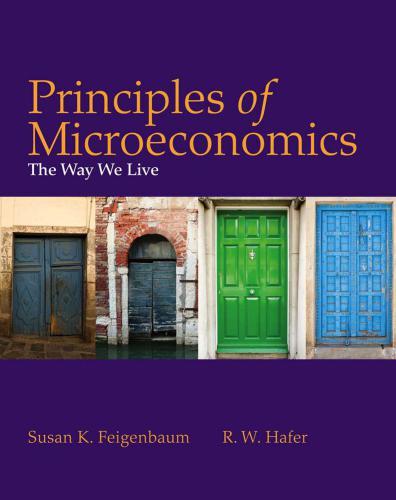A.J. and J.J. have set up housekeeping with each other, and must decide who will take care
Question:
A.J. and J.J. have set up housekeeping with each other, and must decide who will take care of their eight-month-old child and who will go to work to “put bread on the table.” Suppose that their PPFs are as follows (assume that their nonsleeping hours are spent either working or taking care of the child):
a) Who has the absolute advantage in terms of producing market-based consumption, QC?
b) Who has the absolute advantage in terms of providing child care?
c) Who has the comparative advantage in terms of providing child care?
d) Who will go to work, and who will stay home?
e) What is A.J.’s hourly wage rate? How about J.J.’s hourly wage rate?
f) What is the maximum amount of consumables (in dollars) this family can achieve if the partners specialize, given their PPFs?
g) Would your answers to
(d) and
(f) change if a babysitter were available at $11 per hour? What about at $8 per hour?
Step by Step Answer:

Principles Of Microeconomics: The Way We Live First
ISBN: 9781000639810
1st Edition
Authors: Feigenbaum S.K., Hafer R.W.






